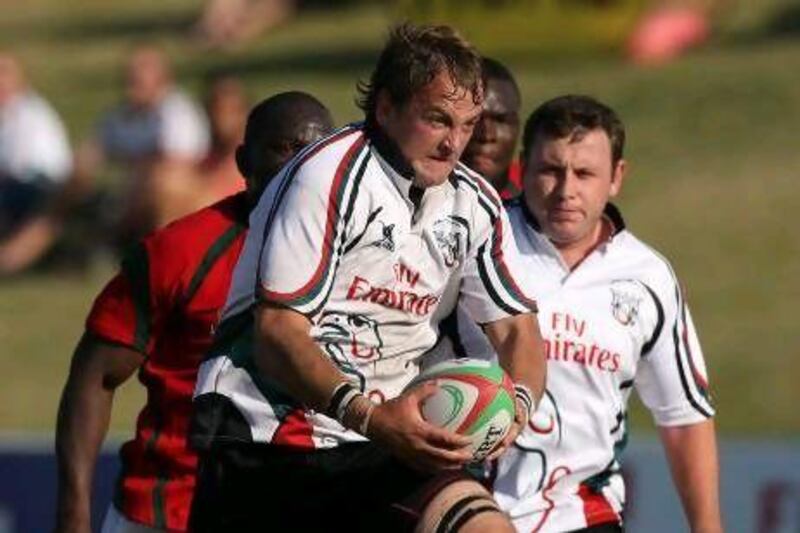DUBAI // The UAE will be looking for their fifth national team captain in just a year and a half after Alistair Thompson confirmed his intention to retire from all rugby.
The Abu Dhabi Harlequins No 8 was handed the captaincy ahead of this year's Asian Five Nations, and was one of the standout players as the UAE won their battle to beat relegation.
However, after five matches in charge, he is now planning to step away from the game to devote more time to parenthood as well as his job as a teacher.
"I will have fond memories of the game to take with me," Thompson said. "I am not saying I will never put a pair of boots on again or play again, but it is my intention to give more time to my family.
"I don't think I'll appreciate what it feels like until I am standing on the sidelines watching a Harlequins game next year. Maybe at that point I'll want to pull my boots back on."
His last match was the 47-21 defeat to South Korea in Seoul on Saturday, a performance from the national team that he deemed the best in his short spell at the helm.
On the same day, the UAE's status in the top flight of Asian rugby was confirmed as Kazakhstan's hefty defeat in Hong Kong condemned them to demotion.
"He has been a great leader and if it is his last game we [wanted] to send him out on the best note possible," said Duncan Hall, the UAE performance manager.
In the short life cycle of the UAE national team to date, the captain's armband has already had a variety of custodians.
Mike Cox-Hill was the first incumbent, having also been in charge of the last Test involving the Arabian Gulf in 2010, before the task was handed on to Renier Els, Dan Heal and then Thompson.
The fact none of them are available for national team selection any longer is symptomatic of a wider problem that has always existed within the game here, namely a high turnover of senior players.
Because of a general reliance on expatriate players who need to be resident here for three years to be eligible to play, the national team usually has a higher average age than teams from other countries.
Thompson even intimated the high average age of his side may have been the reason for their late capitulation in the defeat in Seoul. According to Hall there is no simple answer for extending the length of time the leading players are involved with the national team.
"Do I see a way round it? Not in a purely amateur game, no," Hall said.
"The only way around it is to create some level of semi-pro, where a guy is more into rugby than he is into his career. It all takes money. There are lots of issues [involved with that]."
Thompson's retirement will be keenly felt at his club side, Harlequins, who have also had to juggle the leadership role in recent times.
Jamie Clarke started last season as captain before moving to Qatar for work, then Thompson assumed charge and lifted the Gulf Top Six and UAE Cup titles during his second spell at the helm.
"It is a massive blow to lose Ali because of the knowledge he brings to the game," said Chris Davies, the Harlequins director of rugby.
"He is able to lead by example. When a player makes that decision it is difficult, but as a coach you just have to respect that.
"I am glad he has had a great season to finish on and wish him all the best."
Follow us
[ @SprtNationalUAE ]
& Paul Radley
[ @PaulRadley ]






